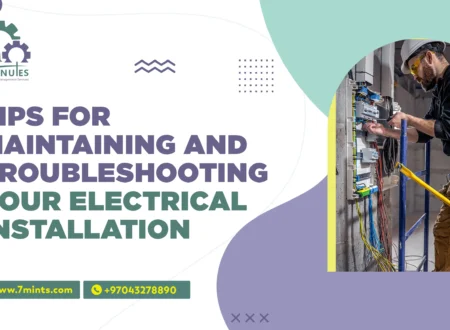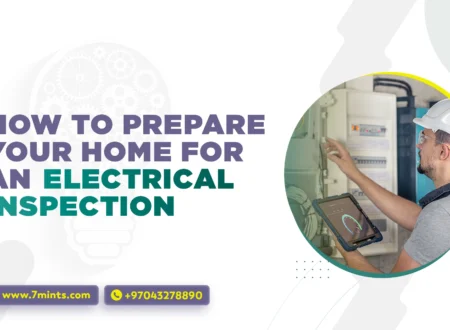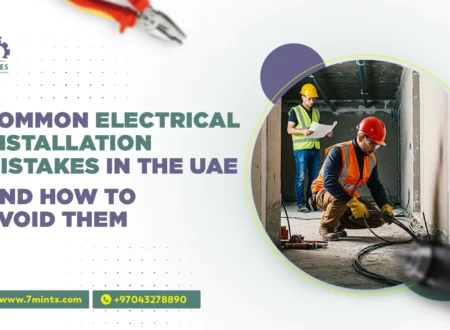Electrical accidents are one of the most common causes of home fires and injuries. Following Top ten Electrical Safety Tips can significantly reduce risks and help protect your family. This informative blog serves as a practical electrical safety guide designed to educate readers and promote safer daily practices. Whether you live in an apartment or an independent house, understanding electrical safety tips for homeowners is essential for long-term safety.
Electricity is really one of the keys in modern living to run homes and devices. However, it can present dangers when mismanaged. Electrical accidents can cause fire, injuries, and sometimes death. As a homeowner, it is important to comprehend the measures and implement electrical safety to save your family and property from their worst. Here are ten things that every homeowner needs to know about electrical safety.
Why Electrical Safety Matters at Home
Ignoring basic precautions can lead to shocks, fires, or appliance damage. The Top ten Electrical Safety Tips focus on prevention, awareness, and regular maintenance. These electrical safety tips for homeowners emphasize safe usage of wiring, sockets, and electrical equipment. Following a structured electrical safety guide ensures that safety measures are applied consistently throughout the home.
Top Ten Electrical Safety Tips Everyone Should Follow
One of the most important Top ten Electrical Safety Tips is to avoid overloading power outlets. This is one of the most effective home electrical safety tips to prevent hazards and reduce fire risks. Another key step among the Top ten Electrical Safety Tips is replacing damaged wires immediately, as exposed wiring is a serious safety threat.
Keeping electrical appliances away from water is also part of essential electrical safety tips for homeowners. This practice is included in many home electrical safety tips to prevent hazards because moisture increases the risk of electric shock. Regular inspection of electrical panels is another critical step listed under Top ten Electrical Safety Tips.
Using certified electrical products supports a safer home and aligns with electrical safety tips for safe living environment. Childproofing sockets is another recommendation frequently highlighted in electrical safety tips for homeowners and Top ten Electrical Safety Tips alike. Turning off appliances when not in use remains one of the simplest yet most effective home electrical safety tips to prevent hazards.
1. Unplug Unused Appliances
Unused appliances plugged into the power supplies rather become fire hazards through overheating or power surges. Unplugging eliminates the risk and significantly saves energy from phantom power. Consider buying smart plugs for an automatic approach.
2. Do Not Overload Your Outlets
Fires usually result from excessive plugging into an electrical outlet. Each outlet has its capacity. In many households, they can take maximum charges of about 13 amps or 3000 watts. Overloading the single outlet by connecting multiple high-powered appliances will result in exceeding this limit, leading to overheating, thus pointing out a possible hazard for fires. Use different outlets for one appliance only and refrain from daisy-chaining extension cords.
3. Regularly Inspect Cords and Plugs
Frayed wires or exposed conductors can lead to electrical shock or fire. Inspect regularly and replace any cords that have cracks or burn marks on them. Never use cords under rugs or carpets, as this can hide damage and cause overheating.
4. Install Ground Fault Circuit Interrupters (GFCI)
They are very important in situations where an electric shock could occur, especially in areas where water is present, bathrooms, kitchens, garages, and outdoor spaces. When GFCI detects a current that is leaking, it will automatically shut the power off so as to electrocute you. If your home does not have GFCIs, consider upgrading the outlets in your home. Check out our latest blog post on Five Ways to Ensure Safe Electrical Installation Services
5. Keep Electrical Devices Away from Water
Water and electricity are dangerous combinations that lead to electrocution or short-circuiting. Ensure appliances are kept at a distance from sinks, bathtubs, or any moisture source. Turn off the circuit before you retrieve an appliance that has fallen into the water while plugged in.
6. Don’t Use Extension Cords as Permanent Solutions
Extension cords are meant only for short-term use. Using them very frequently increases the heating, causing extra fire hazards. Thus, if you need to use extension cords regularly, it is better to have more outlets in the house.
7. Childproof Your Outlets Children are naturally curious
about electrical outlets, which can become dangerous if they are confused. Plastic outlet covers or tamper-resistant receptacles can minimize the risk of a child receiving a shock or burn.
8. Perform Regular Maintenance Checks
Electrical wiring systems must be inspected periodically, as they need to be brought up to current safety standards. Signs of old wiring should be present; circuit breakers that do not work may need to be fixed or replaced; and some faulty outlets should be updated. Safety features can be upgraded in your home to modern standards to greatly reduce risk, such as installing surge protectors and circuit breakers in the electrical systems.
9. Learn About Circuit Breakers
The first line of defense for your house against overloads and short-circuiting is the circuit breaker. You should learn how to reset them properly, and you must know that the common signs, such as frequent tripping, may be testimony to the malfunction of the breakers, thus calling for an intervention by a professional to investigate a possible underlying problem.
10. Use Qualified Electricians for Repair Works
Repairs and installations of electrical items by yourself can be hazardous if you have not undergone proper training. To avoid injuries and fire due to dangerous faulty installations, always hire a certified electrician for the repair and upgrade works.
Additional Tips for Enhanced Safety
1. Smoke Alarms Installation
Smoke alarms are important for house safety, especially in places with high electrical concentrations, such as areas surrounding electrical panels and electrical outlets. Detecting smoke allows one to be alerted in good time to the onset of a possible fire before it spreads. Such alarms should be installed in every level of one’s house as well as in different areas, such as bedrooms and hallways. Alarms should be tested periodically to ensure they are functioning well, and batteries should be changed at least once every year.
2. Use Appropriate Wattage
It is highly important to use appropriate wattage for a lamp or appliance. It has to be made according to the wattage specified for that particular fitting or appliance. This wattage can be found from either the fitting itself or from the manufacturer’s instructional manual. Using greater wattage heats the wires beyond the normal insulation and then insulation fails, leading to fire hazards. So always go for energy-saving, flimsy-looking bulbs that give adequate light. This would reduce the chances of overload.
3. Storm Readiness
When the storm strikes, lightning often destroys sensitive electronic devices—computers, televisions, and gaming consoles, to name a few— because of sudden power surges caused by harsh weather interruptions. It is advisable to unplug equipment such as computers and televisions when storms are expected to keep them safe from damage. In case of unexpected surges in electricity, it is also good to have surge protection. These absorb excess voltage and nullify it before it reaches the electronics.
4. Arrange Cables
Loose or tangled cables pose many risks to safety—a tripping hazard—a nibble/snack for a pet or a child. Arrange these cables for safety by using ties or clips to have them bundled neatly and out of everyone else’s way. Periodically inspect cables for wear and tear and replace any cord that is fraying or shows damage.
Creating a Safe Living Environment
Following Top ten Electrical Safety Tips helps create an electrical safety tips for safe living environment that protects both people and property. Scheduling professional inspections is among the most trusted electrical safety tips for homeowners and is often recommended in every reliable electrical safety guide.
Educating family members about safe practices reinforces Top ten Electrical Safety Tips and supports daily safety awareness. These home electrical safety tips to prevent hazards reduce emergencies and enhance confidence in managing household electricity.
Conclusion
Top ten Electrical Safety Tips is not optional it is a necessity. By following trusted electrical safety tips for homeowners, using a reliable electrical safety guide, and applying proven home electrical safety tips to prevent hazards, you ensure a safer and more secure home for everyone.
These handy tips for electrical safety are less about accident prevention and more about creating a safe environment for family and friends. Contact us for better guidance on Unplugging appliances when not in use, never overloading an outlet, inspecting cords for damage regularly, installing ground-fault circuit interrupters (GFCIs), keeping electrical devices away from water, never using extension cords as permanent wiring, childproofing electrical outlets, regularly inspecting your home, having an understanding of how circuit breakers work, and hiring an electrician or electrical contractor can reduce the risks of using electricity in your house.










1 Comment
Comments are closed.